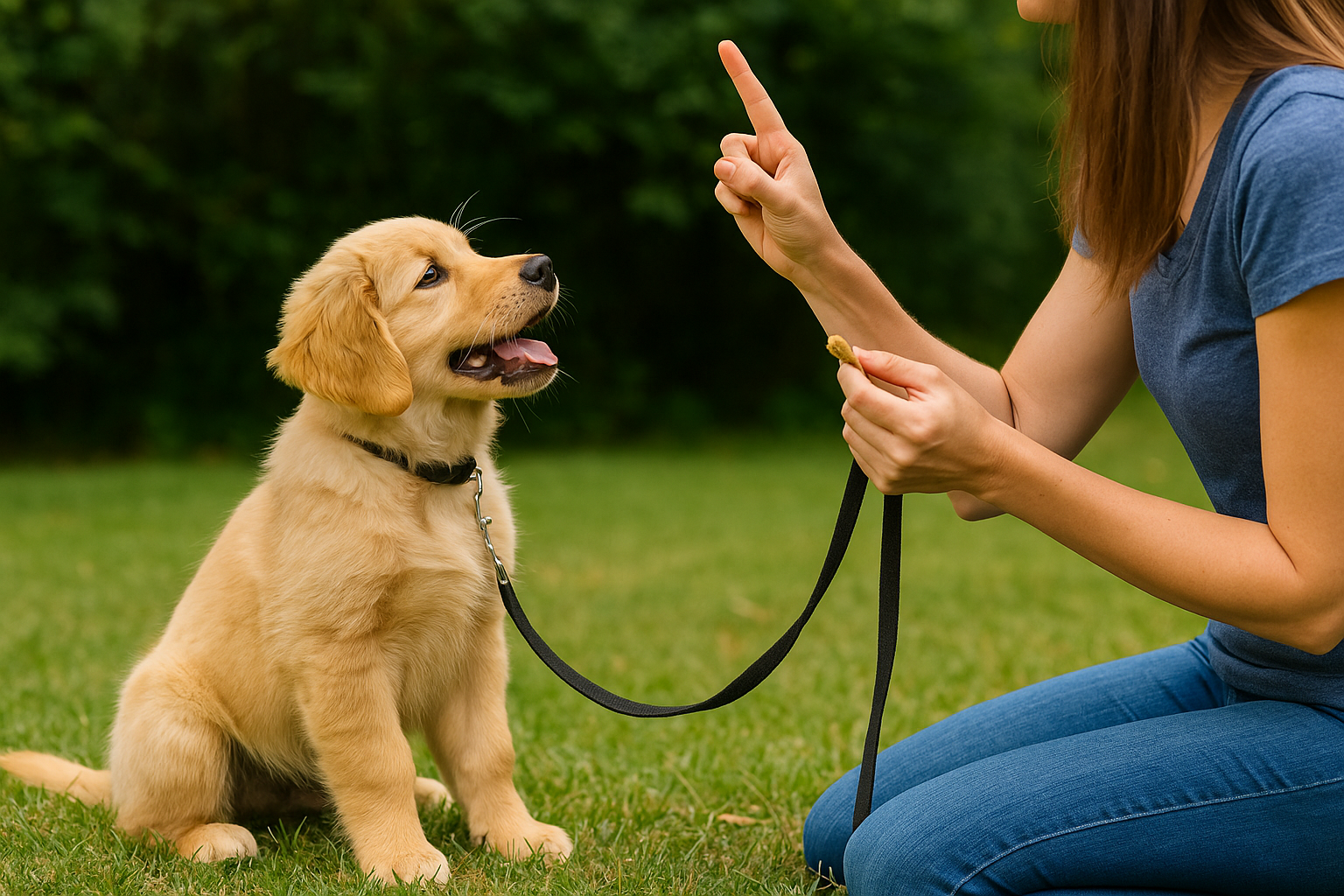Golden Retriever puppies are adorable, smart, and eager to please—but without proper training, their energy and curiosity can quickly turn into mischief. Early training not only helps prevent unwanted behavior but also builds a strong, lifelong bond between you and your dog.
In this guide, you’ll learn the essential steps to train your Golden Retriever puppy from the moment they come home—using positive reinforcement, patience, and smart structure.
Why Start Training Early?
The first few months of a puppy’s life are crucial. Their brains are rapidly developing, and they’re absorbing everything around them.
Benefits of Early Training:
- Builds trust and communication
- Establishes house rules and boundaries
- Reduces destructive behavior
- Promotes socialization with people and other animals
- Makes future training much easier
Even at 8 weeks old, your Golden is ready to start learning basic commands and house manners.
Understanding Golden Retriever Puppy Behavior
Golden Retriever puppies are:
- Intelligent – They pick up on routines and commands quickly
- Energetic – They need plenty of physical and mental stimulation
- Mouthy – Retrievers love to carry and chew objects
- Social – They thrive on interaction and hate being alone
Recognizing these natural traits helps you build a training plan that fits their instincts.
Crate Training and Potty Training
Crate Training:
A crate is one of the best tools for house training and safety.
Tips:
- Choose a crate large enough for your puppy to stand, turn, and lie down—but not so big that they can potty in one corner.
- Make it cozy with a bed and a toy.
- Never use it for punishment.
- Use it during naps, bedtime, or short alone time.
- Reward your puppy when they go in voluntarily.
Potty Training:
Consistency is key.
Steps:
- Take your puppy out every 1–2 hours, and after eating, drinking, playing, or waking up.
- Go to the same potty spot each time.
- Praise immediately after they go outside.
- Clean accidents thoroughly indoors to remove scent.
- Be patient—accidents will happen!
Teaching Basic Commands
Start with simple commands using positive reinforcement (treats, praise, or play).
Essential Commands:
- Sit: Lure with a treat over the head until the puppy sits, then reward.
- Down: Guide from sit position to the ground with a treat.
- Come: Use a happy tone and reward when your puppy runs to you.
- Stay: Start with short distances and gradually build up.
- Leave it: Great for teaching impulse control.
Keep sessions short and fun—5 to 10 minutes, multiple times per day.
Socialization Is Just as Important
Proper socialization prevents fear and aggression later in life.
What to Expose Your Puppy To:
- Other dogs (vaccinated and friendly)
- People of all ages
- Cars, bikes, loud noises
- Different surfaces (grass, gravel, hardwood, etc.)
- Vet visits, grooming tools, car rides
Use treats and praise to create positive associations with new experiences.
Dealing with Common Puppy Problems
Biting and Nipping:
Golden puppies often nip during play—it’s natural, but needs redirection.
Tips:
- Yell “ouch!” and stop play when they bite too hard.
- Offer chew toys as alternatives.
- Avoid rough play that encourages biting.
Jumping:
They jump to greet and get attention.
Fix It By:
- Turning away and ignoring when they jump
- Only giving attention when all four paws are on the ground
- Rewarding calm greetings
Chewing:
They chew to explore and soothe teething.
Prevent It By:
- Providing safe chew toys
- Puppy-proofing your home
- Supervising constantly or using a playpen
Training Tips for Success
- Be consistent – use the same commands and rules every time
- Keep sessions fun and short – puppies get bored easily
- Use rewards, not punishment – positive reinforcement builds trust
- Stay calm and patient – puppies learn at their own pace
- End on a high note – always finish with success and praise
When to Start Advanced Training
After 4–6 months, you can introduce more advanced commands and activities:
- Leash walking
- “Place” or “go to bed”
- Trick training (high five, spin, rollover)
- Off-leash recall
- Canine sports like agility or scent work
Training should evolve with your puppy’s maturity and energy.
Final Thoughts: A Well-Trained Puppy Is a Happy Dog
Training your Golden Retriever puppy doesn’t require harsh corrections or hours of drills—it takes structure, love, and consistency. With the right foundation, you’ll raise a well-mannered dog who’s confident, calm, and an absolute joy to be around.
Start early, stay positive, and celebrate every little win—your puppy will thank you for it.

